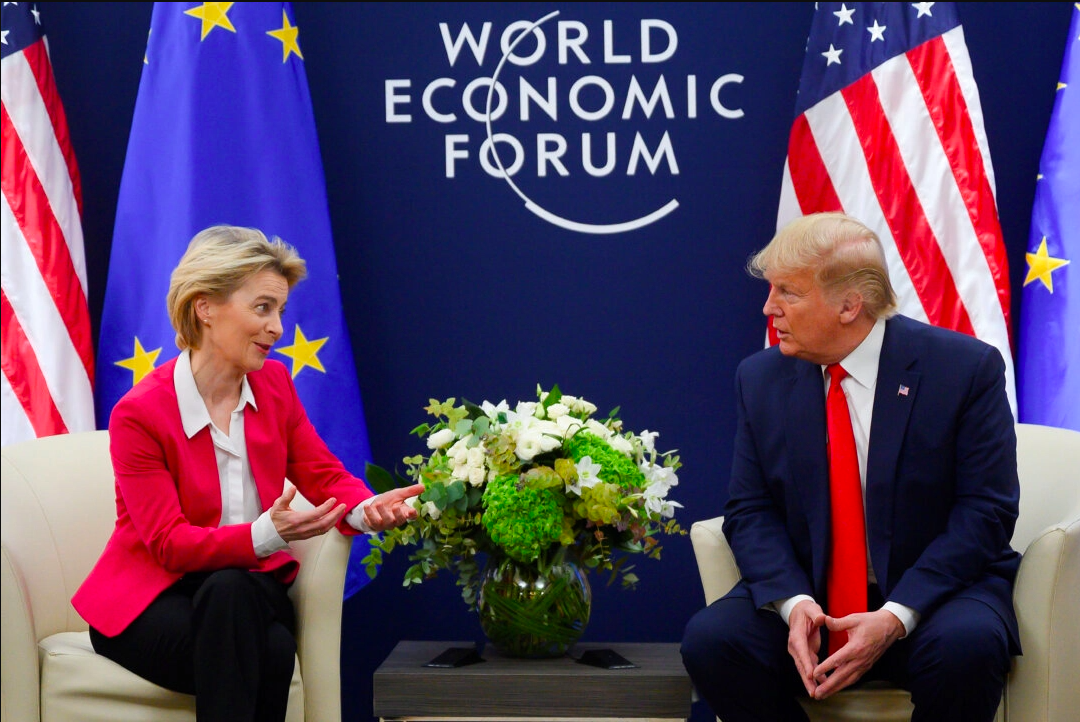
Published 09/04/2025 14:11 | Edited 09/04/2025 17:33
The European Union approved on Wednesday (9) its first retaliation package against the tariffs imposed by the president of the United States, Donald Trump. The response reaches about € 21 billion ($ 23 billion) in American products and has the central target of Trump’s electoral strongholds, especially agricultural states that export to the block.
The measure was adopted on the same day that Trump’s “reciprocal tariffs” began to be valid for almost all US business partners – including 104% rates on Chinese products and 25% on steel, aluminum and European vehicles, as well as a 20% universal rate on goods in general.
Products affected by new European rates are soy, beef, tobacco, aluminum, steel, chicken, car parts, ice cream, hygiene products, underwear and even ties and electric blankets – items with strong exports in the so -called “red states” (republicans). Soy is the most targeted item, with 82.5% of US exports to the EU from Louisiana, the mayor of the mayor, Republican Mike Johnson.
According to politics analysis, up to $ 13.5 billion in state exports that voted for Trump can be impacted. Data reveal that 61% of affected agricultural products come from republican states, compared to 39% of democrats.
European tariffs will be applied in three steps:
- The first starts on April 15, about products such as orange juice and red fruits;
- On May 16, meat, plastics and white steel come in;
- And from December 1st, the tariffs will focus on soy and almonds.
The European Commission has stated that tariffs may be suspended at any time as long as the US agrees to negotiate “a fair and balanced agreement.” A “zero to zero” proposal in industrial tariffs was sent to Washington, including sectors such as cars, pharmaceuticals, plastics and machinery. Trump, however, rejected the offer and demanded that the EU purchased $ 350 billion in US energy as a counterpart.
Behind the scenes, France, Germany and other countries press for the EU to use the so-called “anti-coercion instrument”, a legal tool created to react to countries that use trade as a blackmail weapon. According to Bloomberg, the block also studies reaching US technology and services companies as an extreme measure.
Trump has repeated that the EU has been created to “harm” the US in commerce, and that European regulations are “traps” to block American products. “Let’s no longer allow this,” said the Republican.
The tariff war rekindles a dispute that began in Trump’s first term in 2018, when the US taxed the EU steel and aluminum exports alleging national security reasons. At the time, Brussels responded with rates on jeans, whiskey, Harley-Davidson motorcycles and other symbolic products. A truce was signed in 2021, but now the trade conflict is climbing again.
In addition to the European Union, China and Canada also announced retaliatory measures, raising the total value of US exports to about $ 90 billion.
Source: vermelho.org.br

